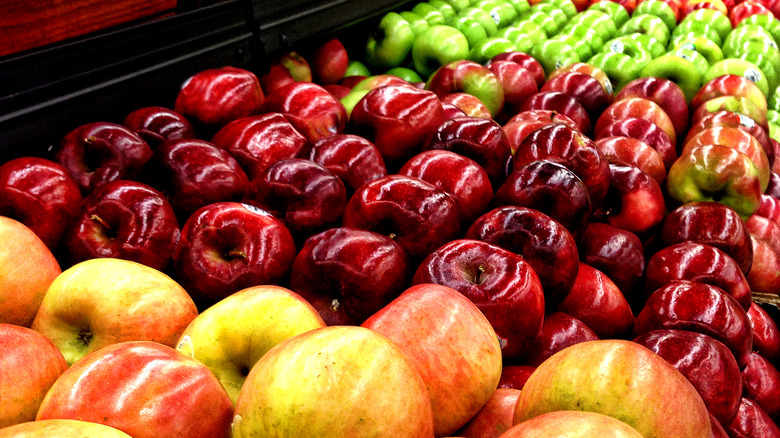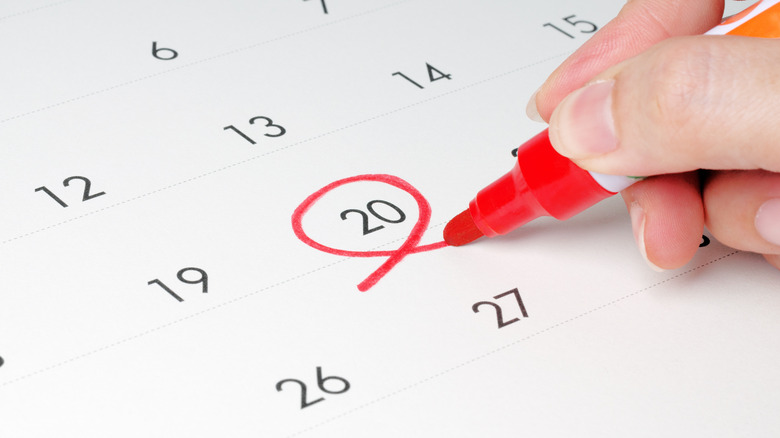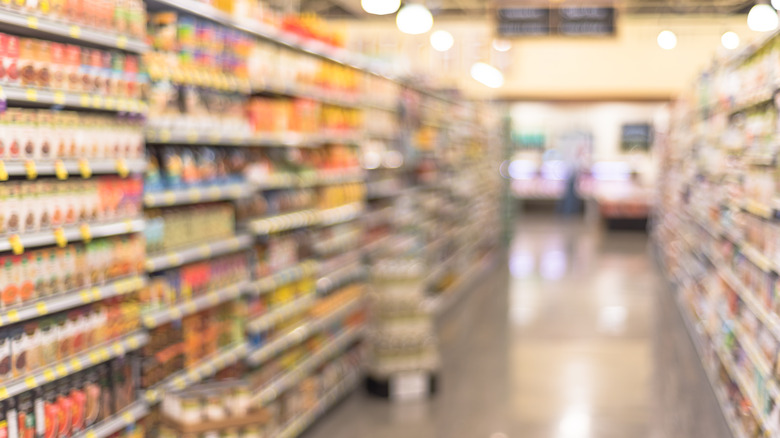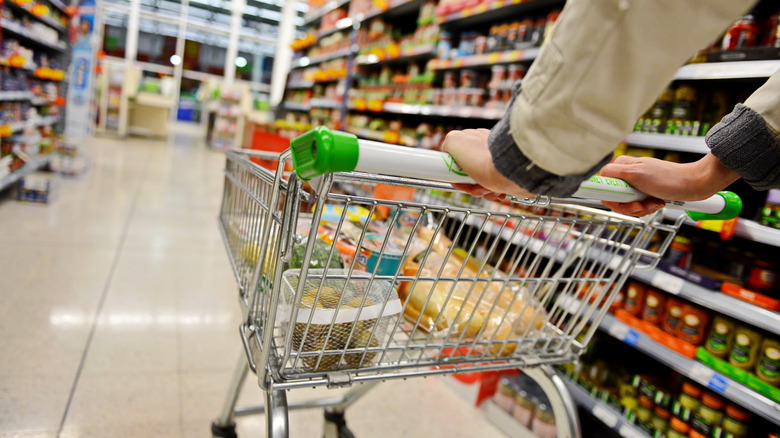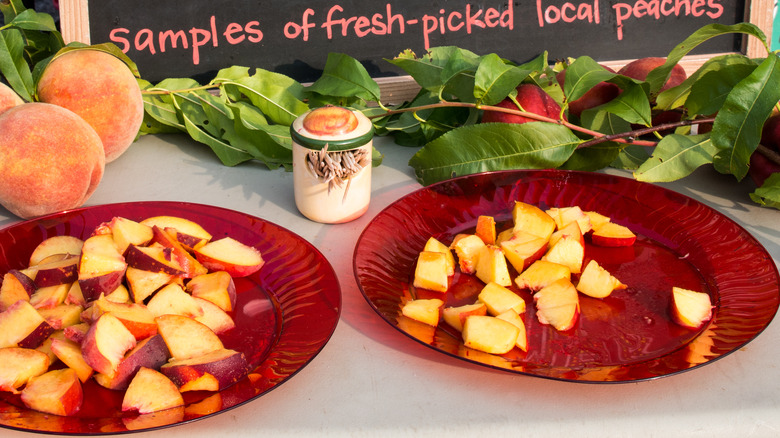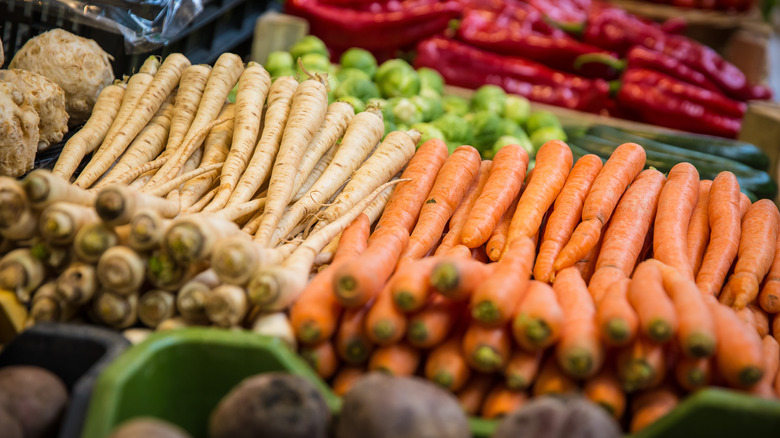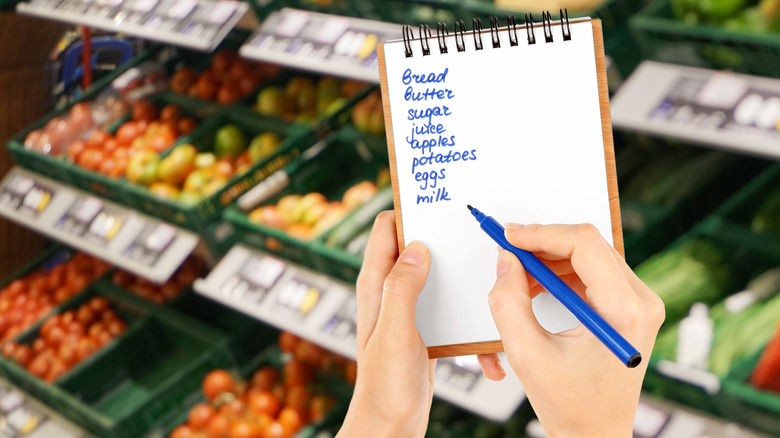Things All Smart Grocery Shoppers Know
Grocery stores are designed to make you stay for a long time and buy a lot of things you don't need. But smart grocery shoppers know how to get the best deals on the things they actually want to buy while leaving everything else on the shelves. Here's how to make the most out of your trip to the grocery store.
Shop midweek, early in the morning, or at night
While many people choose to do their grocery shopping on the weekend, that's actually the worst time to go. If you go during off-hours, you'll be more likely to get better deals on bakery items that need to be sold right away. By shopping in the morning, you'll also get discounts on produce or meat items that are about to be rotated out.
You can take it a step further by finding out when your local grocery store restocks the shelves. Go to the store right before restocking to take advantage of lowered prices on things that are about to be replaced by newer items.
Don't fill your cart
Did you know that grocery carts are three times larger than they used to be? That's because when you have a larger cart, you tend to buy more. In a 2011 experiment, researchers found that when you double the size of your shopping cart, you're likely to buy about 40 percent more groceries. In order to avoid over-purchasing, choose a smaller cart or a handbasket if you can. If only a mega-sized shopping cart is available, don't be tempted to fill it up.
Only visit the aisles where you actually need something
The more time you spend walking through aisles, the more likely you'll be to buy things you don't need. Every inch of your supermarket is designed to entice you to buy more, and if you walk down random aisles because you think you might need something, more likely than not, you'll end up with groceries you didn't intend to buy. Instead, make a plan of attack before you walk in the door. Skip all the aisles that don't have something you specifically need.
Start in the middle of the store
Have you ever noticed that you walk the same way around the supermarket every time you go? That's because stores are specifically designed to get you to walk a certain route. It starts with the flower display and bakery, where the tasty smells will activate your salivary glands and make you hungrier so you'll buy more. Then you walk by the deli counter. If you're hungry, you may decide to stop for a bite to eat or grab some cold cuts.
By the time you get to the dairy section, your cart is already full of impulse purchases. Instead of falling into that trap, skip the perimeter of the store and go straight for the middle.
Don't try the free samples
I love free samples, and I often make a beeline for them whenever I go to Whole Foods or Trader Joe's. But the stores aren't doing me any favors by giving me a bit of free food. Free samples aren't actually there to get you to buy that specific product. Instead, the bite-sized offerings are intended to make you feel like you're hungry so you'll buy more overall. If you don't want to get home with three extra bags of tortilla chips, eat something before you shop and skip the samples.
Listen to fast-paced music on your headphones
Have you ever heard a fast-paced song playing in a grocery store? Probably not. Usually, they play slow background music to get you to slow down and spend more time in the store. In a 1982 study, researchers found that when a grocery store played faster music, customers walked more quickly through the aisles, which resulted in lower profits for the store. While you can't change the background music in your local store, you can speed yourself up by wearing headphones and listening to a nice dance playlist on your phone. That'll get you zipping through the aisles.
Look at the unit price instead of the overall price
Prices of grocery store items often don't mean what they appear to mean at first. That's because they just tell you how much you'll be spending overall, not how much items cost per pound or per ounce. Instead of focusing on the overall price, look at the unit price. That will show you the actual difference in the prices of the products you buy. You will probably find that what you thought was a better deal is actually more expensive per unit.
Buy store brands when you can
Store brands are often just as good as other brands, and they usually cost less. That's because they don't have the same marketing costs as bigger, national brands. While store brands were once lower quality, now they're actually quite good in many stores. Trader Joe's, for example, only sells its own brand and is known for having high-quality groceries.
In 2014, a study by the University of Chicago's Booth School of Business asked chefs which items they were most likely to buy generic. At the top of the list were bakery items, dried fruit, and spreads like jams or jellies. If these items were good enough for professional chefs, they're likely good enough for you, too.
Buy produce in season
Buying produce in season has lots of benefits. More availability means lower prices. You'll also be buying the tastiest food available; when produce is in season locally, it doesn't have to sit in crates or be transported across long distances. In contrast, when fruits or veggies are out of season where you live, they're likely to be picked before they're ripe, and then have to go through a long and expensive trip to get to you. If you're not sure what's in season right now, check out this handy guide from the USDA.
Look at the top and bottom shelves
Brands pay stores a lot of money for their products to be placed at your sight line. Often, they're the most popular brands but also the most expensive ones. To avoid spending extra money for brand names, look at the top and bottom shelves instead. While those companies can't spend as much money as the larger ones for premium shelf space, they're likely to be more cost-effective and just as good.
Pro tip: the top shelf is often stocked with smaller, regional, and gourmet items that are chosen by store managers. If you have an item you'd like to see at your local grocery store, talk to the manager.
Make a shopping list
Making a shopping list will help you stay focused on the things you need to buy versus the items that look tempting in the moment. You'll also save time at the store, as you'll have a clear plan for which aisles to visit and which to skip. For extra points, plan meals and write your shopping list at the same time so you'll be set at dinnertime. Make sure you write your shopping list when you aren't hungry and that you stick to it when you're at the grocery store!
